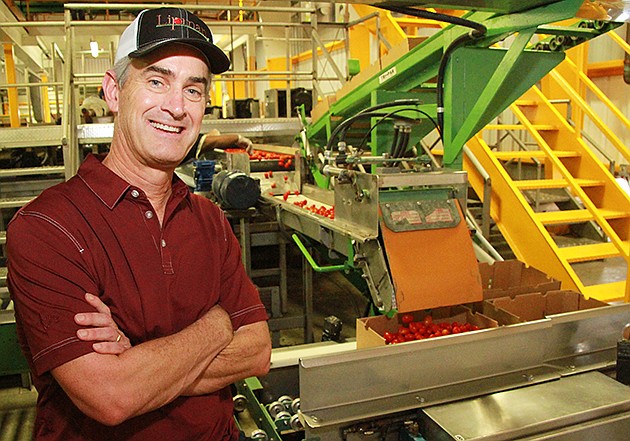The country's largest field-tomato grower is looking south.
“I was supposed to be in Cuba today,” says Kent Shoemaker, the CEO of tomato giant Lipman, from his office in Immokalee in rural eastern Collier County.
When the Russians left Cuba in the early 1990s, they took their fertilizers and pesticides with them. The result is that Cuba has the largest virgin territory for growing organic vegetables and fruits, hot commodities for American supermarket shoppers today.
Even though Havana, Cuba, is less than 250 miles from Immokalee, it's still another world. “To do business there is very difficult,” Shoemaker says, explaining why he's not in Cuba as we speak. “Just getting there is hard.”
But Cuba remains in his sights because finding virgin land is the biggest obstacle for organic farming on a large scale. That's not the only difficulty of organics: smaller yields negate the higher prices farmers can command. “Organic farming is challenging,” Shoemaker says.
Recently, Lipman announced it is moving into the organics market with the launch of Grown True, a line of organics that include tomatoes, cucumbers, zucchinis and peppers. “The point of it is to offer additional fresh items,” says Shoemaker.
Shoemaker has made big strides to keep up with consumer demands since he became the first outsider to lead Lipman in 2011, a fourth-generation closely held agriculture company. Although he declines to disclose sales, he says Lipman has doubled revenues since he became CEO. “There's a good chance we could double again,” Shoemaker notes.
As the costs of land, labor and fertilizers have grown, Lipman has been one of the consolidators. “We've closed six acquisitions in the past four years,” Shoemaker says.
The company operates farms, packing warehouses and distribution facilities all over the U.S. It also operates in Latin American countries such as Mexico and Guatemala. In Estero, it also operates a research and development department with five Ph.D.s, and it has a breeding operation in California that creates new varietals. “We're spending more money on R&D than ever before,” Shoemaker says, showing off the success of a recent succulent tomato called Crimson Queen.
Shoemaker's reputation in the food business is well earned. Before joining Lipman in 2011, he grew Sysco's FreshPoint operations to $1 billion in sales.
Buying land in different states and countries provides the company with year-round growing opportunities. Vegetables also offer diversification away from tomatoes and organic farming is yet another opportunity to grow the business.
A Florida State University graduate, Shoemaker doesn't hesitate to defend the industry, unusual in tight-lipped agricultural circles. He recently penned a letter to the Miami Herald rebutting actress Eva Longoria's critique of the tomato industry.
“We have a story that hasn't been told,” says Shoemaker, who points to the company's good labor relations and land stewardship programs. “People didn't talk about that 10 years ago.”
Follow Jean Gruss on Twitter @JeanGruss






